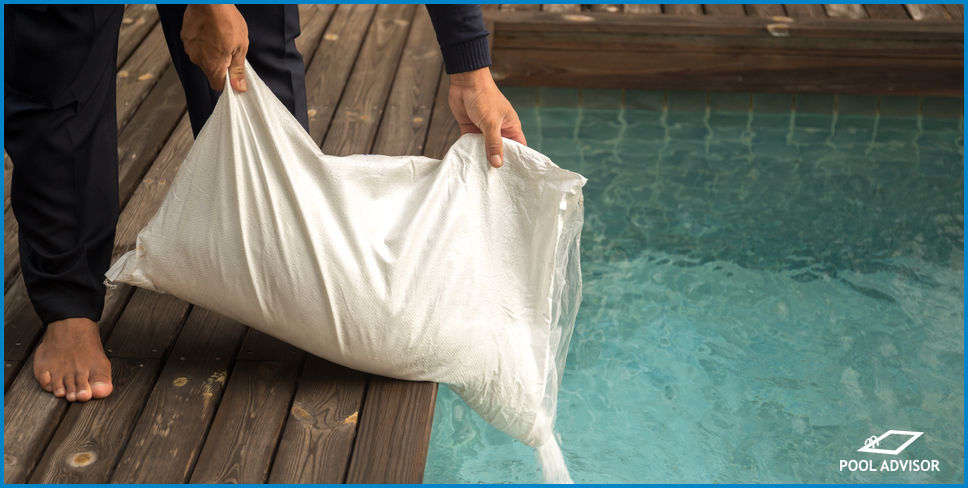
Mineral Pools vs. Salt Water Pools - Which Is Best?
Mineral pools and salt water pools are popular alternatives to typical, chlorine based pools. Salt water pools have a proven track record, while mineral pools are gaining popularity in recent years among those who have found faults with a saltwater system.
In this article, we will explain how salt water and mineral pools work, provide the pros and cons of each system, and compare the two in terms of initial costs, upkeep, and water quality.
How Do Salt Water Pools Work?
Salt water pools involve maintaining high amounts of sodium chloride (ie. salt) in the water. This dissolved sodium chloride compound is then broken down by a pool machine known as a salt chlorine generator or salt chlorinator.
Salt chlorine generators are necessary in salt water pools because they separate sodium chloride molecules into sodium and free chlorine. The combined effects of the sodium and free chlorine in the water are just as effective for sanitising your pool as normal chlorine.
How Do Mineral Pools Work?
Mineral pools work in a similar way as salt water pools, but there is a variation in the original compounds added to your pool’s water. In a mineral pool, sodium chloride is used alongside magnesium chloride and potassium chloride, trading the high amount of salt used in salt water pools for a more balanced mixture of natural minerals.
These mineral compounds are introduced by your mineral water system in their respective components and molecules of free chlorine. Mineral pools are equally effective at sanitation as other types of pools, and these systems often involve the use of copper and silver ion water purification as well, adding an additional layer of protection against water-borne microbes.
Important Comparisons to Make
Upfront Costs
Salt water pools are known for a high upfront cost associated with salt chlorine generators. These machines are available in a variety of models to fit your pool. They start at around $1,200, but some can cost up to $3,000 or more.
You will also need to add an initial dose of pool salt to your water that increases your salt level to somewhere between 2,700-3,700 parts per million (ppm), or otherwise according to your salt chlorine generator’s instructions. This can require up to 120kg of pool salt for a pool size of 30,000 litres.
Thankfully pool salt is quite cheap, so this isn’t much of a burden on your wallet!
Mineral water systems are slightly cheaper to install than salt chlorine generators, and typically already contain the required mineral stores to acclimate your pool water to its new levels. Mineral water systems start at a reasonable price of around $300, with some models that cost up to $1,500 or more.
Running Costs and Maintenance
Saltwater pools require other chemical upkeep in addition to salt. While you will usually not need to purchase additional chlorine thanks to your salt chlorine generator, other chemicals become necessary when using free chlorine, such as a stabiliser.
Stabilisers like cyanuric acid help to protect free chlorine molecules from degrading in the sunlight, reducing the amount of salt you will need to add to your pool during regular maintenance. Many saltwater pools also regularly require the use of pH reducing products to maintain a balanced acidity.
Trace amounts of salt may leave your pool through regular use, and fresh water may be introduced through rain or refilling the pool after evaporation or splashing, which further lowers the salt content of your pool. Salt only needs to be added when salinity levels fall outside of the acceptable range mentioned above.
You will need to check salt levels regularly if you go with a salt water pool.
Salt is a corrosive element, and it is found in high concentration in saltwater pools. Extra care should be taken with equipment and machinery as well as the area around your pool to prevent degradation of these elements.
Mineral water pools are somewhat self-contained, and only require that mineral packs be replaced on a yearly basis. Different models of mineral water systems offer varying longevity for mineral cartridges, with some models lasting more than three years at a time depending on the volume of your pool.
In mineral pools, there are more dissolved minerals and trace metals in the water, which are extremely efficient at sanitation, but these can occasionally form scale or metal staining. This often happens as the result of a chemical interaction forming the stain, but scale and stains can also build up over time.
Copper stains and iron stains are what you should look out for in particular. Stain inhibitors are often used to prevent stains from developing in a mineral water pool.
Certain mineral water pool systems do not make use of a chlorine generating element and will also require the use of normal chlorine. However, the amount of chlorine you will need to purchase is less than half of what would be required in a chlorine-only pool.
There is less need to add stabiliser to a mineral water pool than a saltwater pool, and you could develop an excess of stabiliser.
Health Benefits and Water Quality
Salt water pools are not nearly as salty as seawater, but they contain enough salt to give it a slightly salty taste and make the water soft. Many people notice this difference when swimming in salt water pools, while others do not.
Mineral water pools contain magnesium, an element that is essential for proper functioning of our stress response and musculoskeletal system. Magnesium is often sold as epsom salts and is used in bath water for its numerous benefits. Swimming in mineral pools allows magnesium to be absorbed through the skin, which can also have health benefits.
Mineral water pools typically have soft water due to the presence of potassium and sodium, but this water is slightly harder than what would be found in a saltwater pool due to the presence of the magnesium.
Conclusion
Salt water pools and mineral pools both make great options for pool owners looking to use less chlorine.
Salt water pools tend to have a higher initial setup cost, require the use of stabilisers, and need more salt to be added over time. However, the presence of a chlorine generator often reduces the need to purchase chlorine altogether.
Mineral water pools have a lower initial setup cost, but may require the use of additional chlorine, and have a tendency to develop scale and staining. While the water in mineral pools is not as soft as in salt water pools, it is believed that the magnesium present in mineral pools can be beneficial for your health.
If you are interested in a mineral pool, check out this guide on the pros and cons of a magnesium pool.
Alternatively, if you already have a saltwater pool, check out this guide on how to change to a mineral pool.
Do you have any questions about the differences between salt water and mineral water pools? Let us know in the comment section, we’d love to help!

Louis
A chemical engineer by trade, Louis is committed to debunking myths in the pool industry by explaining the underlying chemistry and making it accessible to all.
